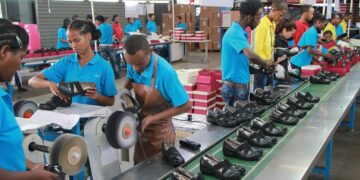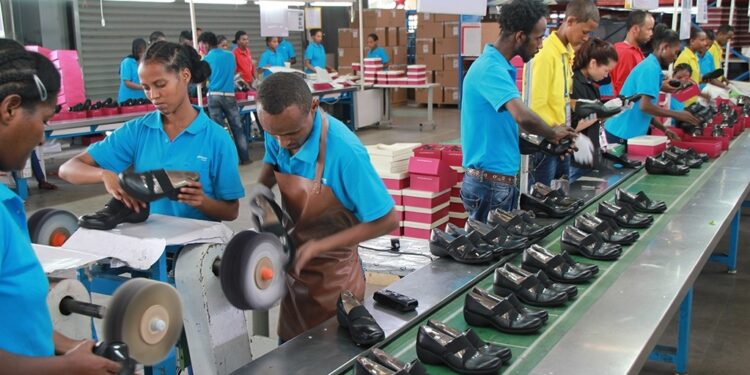Africa’s industrial landscape is undergoing a significant shift as Nigeria secures its position as the continent’s third-largest manufacturing hub, according to a new report by The African Exponent.
The analysis reveals a dynamic ranking of Africa’s top ten industrial economies, with South Africa maintaining its lead, followed by Egypt and Nigeria, while Morocco, Kenya, Algeria, Ethiopia, Ghana, Tunisia, and Zambia complete the list of emerging manufacturing leaders.
Nigeria’s bronze-medal position reflects its ambitious industrialization drive, powered by mega-projects like the Dangote Refinery, Africa’s largest oil refinery with a 650,000-barrel-per-day capacity, and the aggressive expansion of BUA Group across cement, sugar, and infrastructure sectors.
The nation’s manufacturing strength spans cement production, with Dangote Cement as Africa’s largest producer; consumer goods, with Unilever and Nestlé’s extensive local operations; food and beverages, a $9.2 billion industry growing at 7 percent annually; and oil refining, with the Dangote Refinery set to transform regional energy markets.
The country’s 220 million-strong domestic market and recent policy reforms, including the African Continental Free Trade Area (AfCFTA) alignment, have bolstered its industrial appeal despite persistent challenges like infrastructure gaps and energy shortages.
South Africa retains its top position through advanced automotive manufacturing, contributing 6.9 percent to GDP, world-class steel production, and chemical industries anchored by giants like Sasol. The country’s mature infrastructure and deep global integration make it Africa’s undisputed industrial pacesetter.
Egypt follows closely, leveraging its strategic position to supply Europe and the Middle East with cement, pharmaceuticals, and petrochemicals. The government’s industrial modernization program has attracted 40 billion dollars in manufacturing FDI since 2020, with textiles alone employing 1.5 million workers.
Morocco has become an aerospace and automotive export base, supplying one in three cars made in Africa through Renault and Stellantis plants. Ethiopia’s industrial parks now host major global apparel brands, with textile exports hitting 1.4 billion dollars in 2024.
Ghana’s “One District One Factory” initiative has established 296 factories since 2017, transforming cocoa and agricultural processing. Algeria and Tunisia are emerging as auto parts and electronics suppliers to European markets, while Zambia grows its agro-processing sector with Chinese and Indian investments.
The report forecasts Africa’s manufacturing output will reach 284.7 billion dollars by 2025, driven by rising consumer demand, with Africa’s middle class expected to hit 1.1 billion by 2030; the AfCFTA creating a 3.4 trillion dollar single market; and strategic shifts in global supply chains.
However, the continent still captures only 1.9 percent of global manufacturing, highlighting both the growth potential and the need for infrastructure investment and policy consistency.
While Nigeria celebrates its top-three position, analysts note it must address energy deficits, with only 57 percent grid penetration, and port inefficiencies to challenge South Africa and Egypt’s dominance.




































